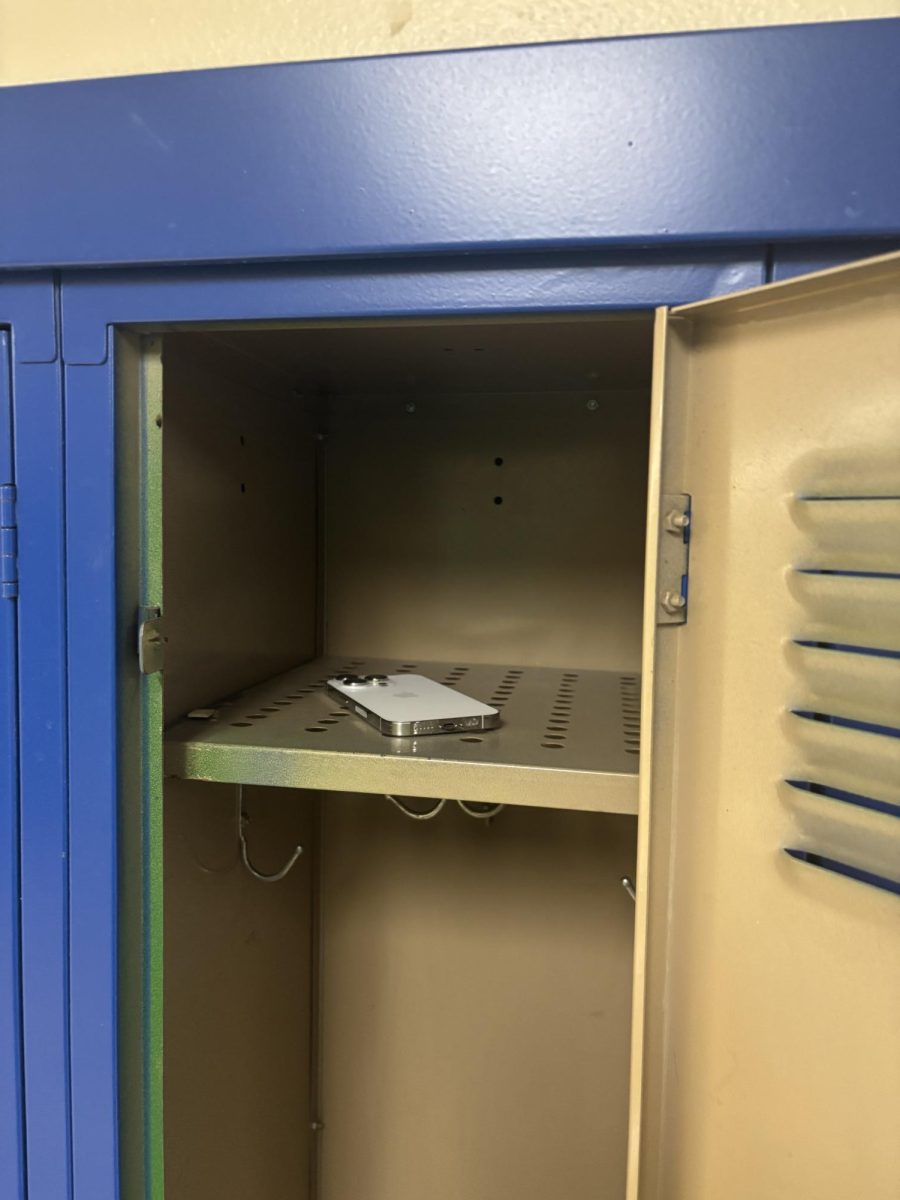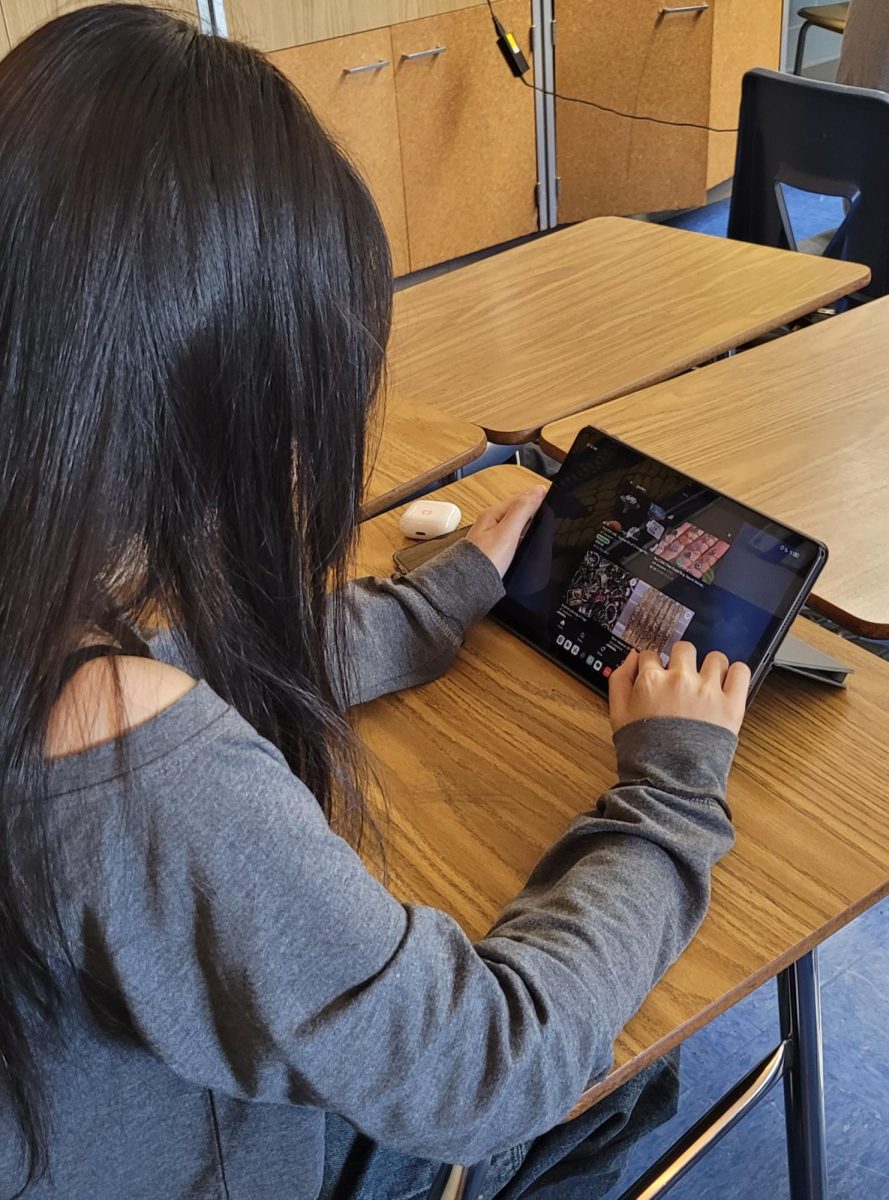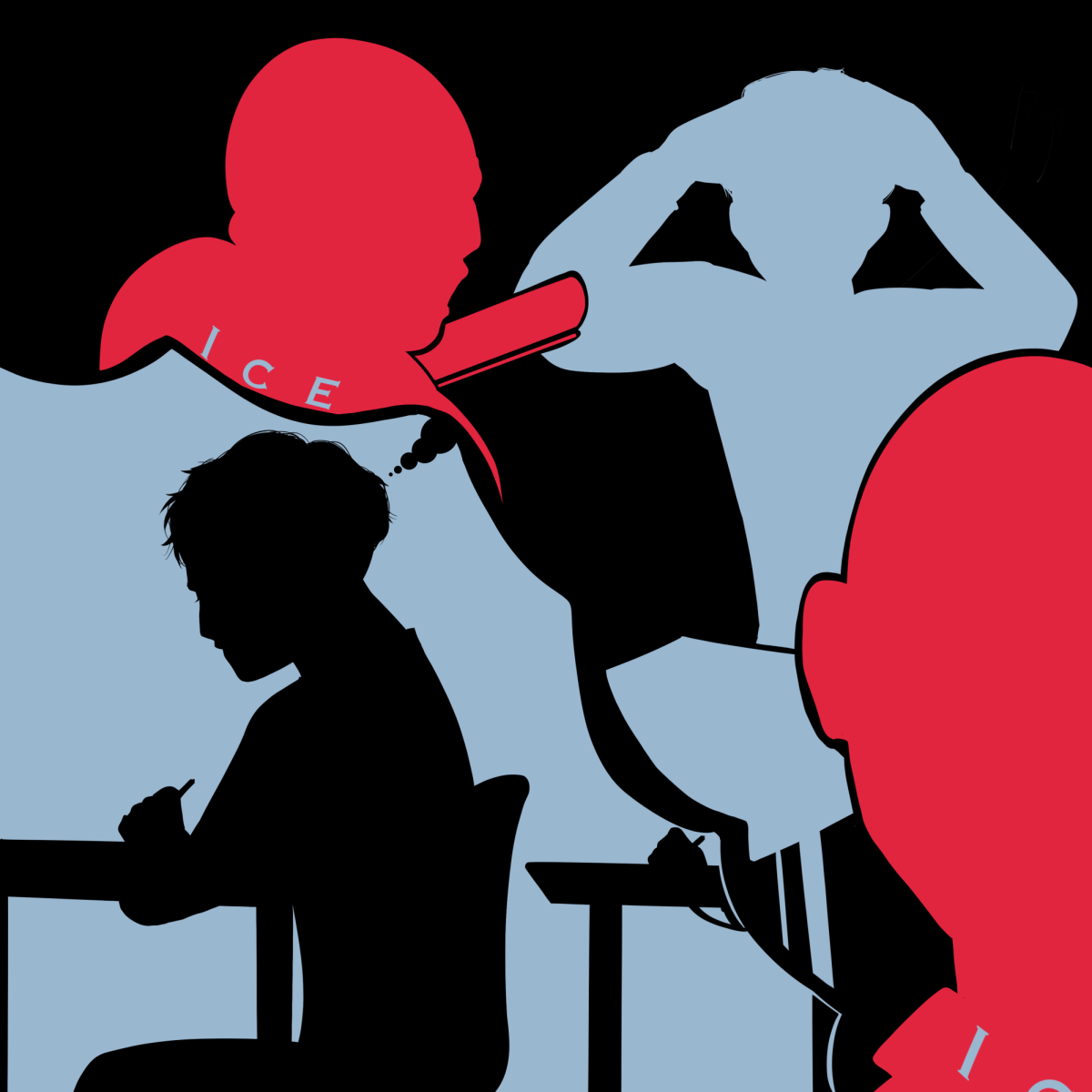Imagine you’re in school and forced to put your phone in your locker daily from 8:15 a.m. until 3:15 p.m., preventing you from using it in case of emergencies, to plan after-school rides or because your Chromebook has been glitching. This is the sad reality that students face at Columbia Academy (CA).
Down the road at CA, students walk the halls with empty pockets and no way to contact parents or guardians unless they have their numbers memorized or written down and can manage to get permission to use a classroom or office landline phone. This can also pose a problem for many families if they want to contact their kids, who need to go through the awkward process of calling the school’s front office and asking to speak to their child, which would necessitate contacting individual teachers in the midst of teaching, planning or grading. For example, if a parent wants to contact their student via text to let them know that they are going to be picked up early or if they will need to find an alternative way to get home that day, they would have to go through a complicated process like emailing their student’s school email or call the school itself to get the message across and even if you do email them, the students often don’t check their email while at school.
Conversely, many students at Columbia Heights High School (CHHS) enjoy our current, more lenient (though stricter than last year) phone policy, but at CA, many students have said that they don’t like it, find it annoying and even hate it. Students often say that it is unreasonable that they can’t have their phones during lunch or passing time.
“I think that it’s reasonable why they want us off our phones,” Ella Anderson Nekora (8) said. “I agree that they do cause a lot of damage to our mental health, but I don’t know why they have such little trust in us that they make us keep them in our lockers all day.”
On the other side, many teachers at CA believe that this new phone policy is beneficial for the classroom environment, cutting down on distractions in class and allowing students to learn more effectively, with fewer distractions.
“The phone policy has allowed for students to focus more on their learning,” Columbia Academy math teacher Ms. Ariel Orcutt said. “I think for middle school these rules are just right.”
An issue that comes up when kids’ phones are placed in lockers during the school day is that the school takes no liability for the phones if they are stolen or damaged. The fact that the school takes no liability for the damages or theft of items is chilling, however when you factor in that locker combinations can be easily stolen, as they don’t change from year to year, the thought becomes formidable. If a student’s phone is stolen because of their locker being unlocked or their locker number being stolen, then it is the family’s responsibility for the losses. Additionally, if the phone is damaged, lost or stolen while it is in the student’s locker, like if liquid spills from a neighboring locker or from someone getting pushed into the locker in the hall, then it is still the family’s responsibility to pay for the damages. The school’s administration takes no responsibility for the rules that they are enacting as a part of this phone policy and the repercussions of it are faced by the students and their families.
“There are a lot of kids who need to call their parents,” Dave Farez (7) said. “Could we cool it with the games and social media? Sure, but I need to know who’s picking me up or when I have a doctor’s appointment.”
In the event that there is a situation where students need to leave the school quickly, such as a fire, lockdown or tornado drill, they aren’t allowed to go to their lockers and gain access to their phone to notify others about the situation they are in. When in a situation where you are in a lockdown, knowing that you have access to your phone is a very comforting thing. Now put yourself in a student’s shoes and imagine not being able to contact someone when in that situation. Nerve-racking, right?
In school, students should be encouraged to communicate with their loved ones and share what goes on in school, not discouraged. At CHHS, students are allowed phones in the classroom—however, if a student is on their phone excessively, then teachers and staff have the ability to confiscate it. The phone policy at Columbia Academy, on the contrary, is quite restrictive and doesn’t allow parents or guardians to contact their students during the school day whether it’s an emergency or just to make sure their day is going well.










